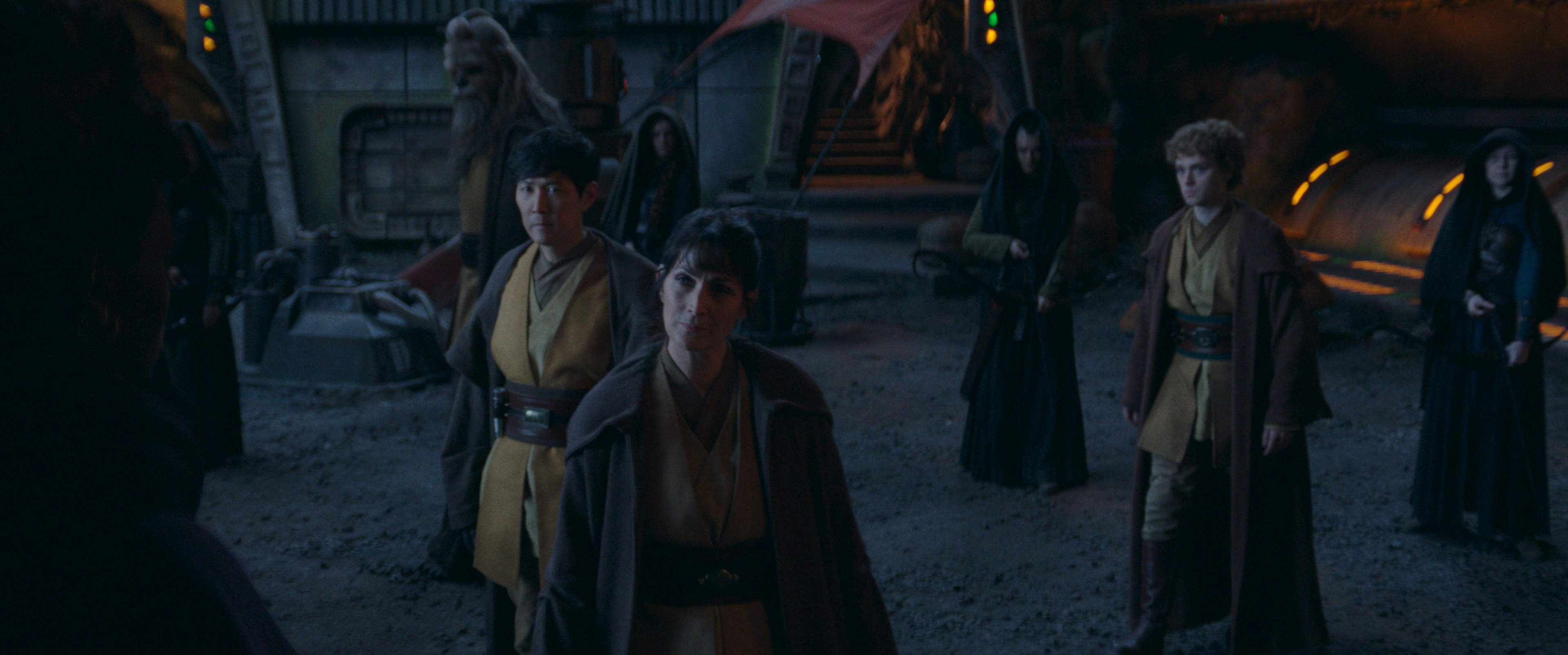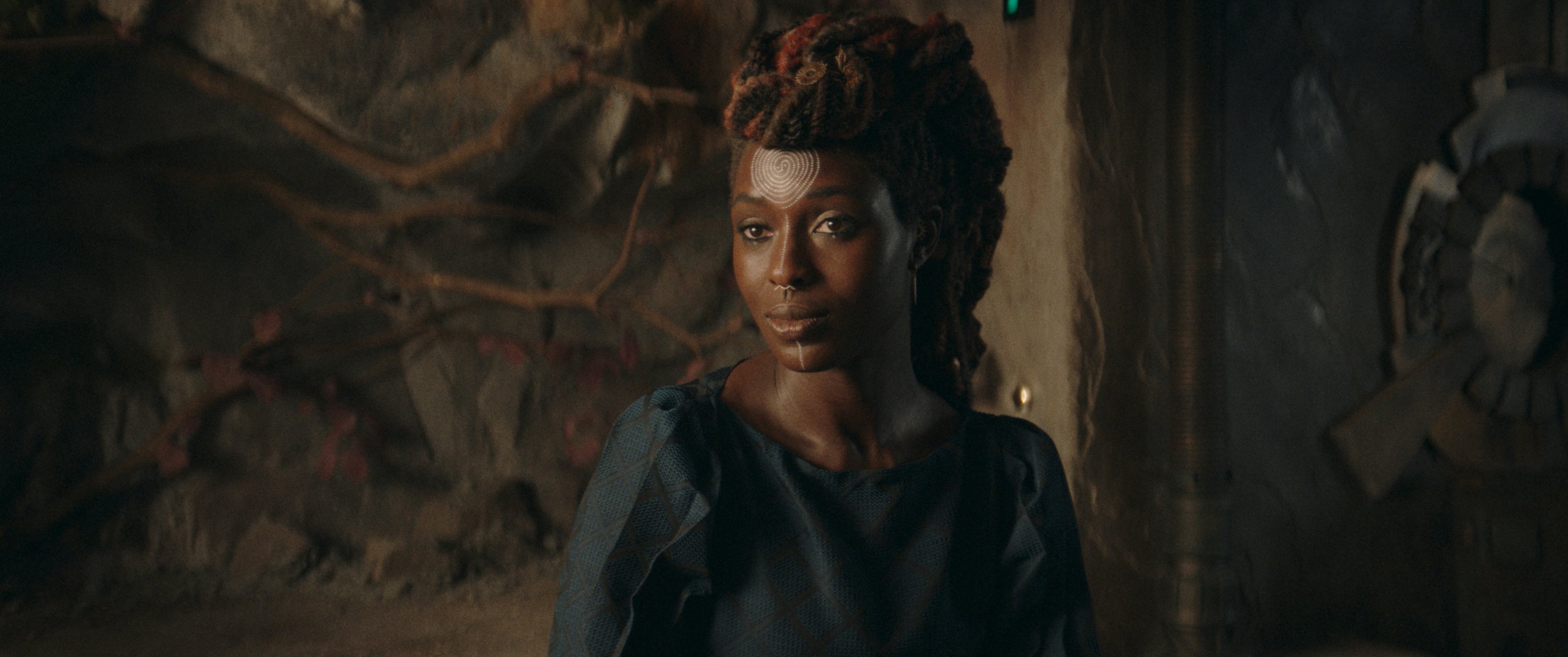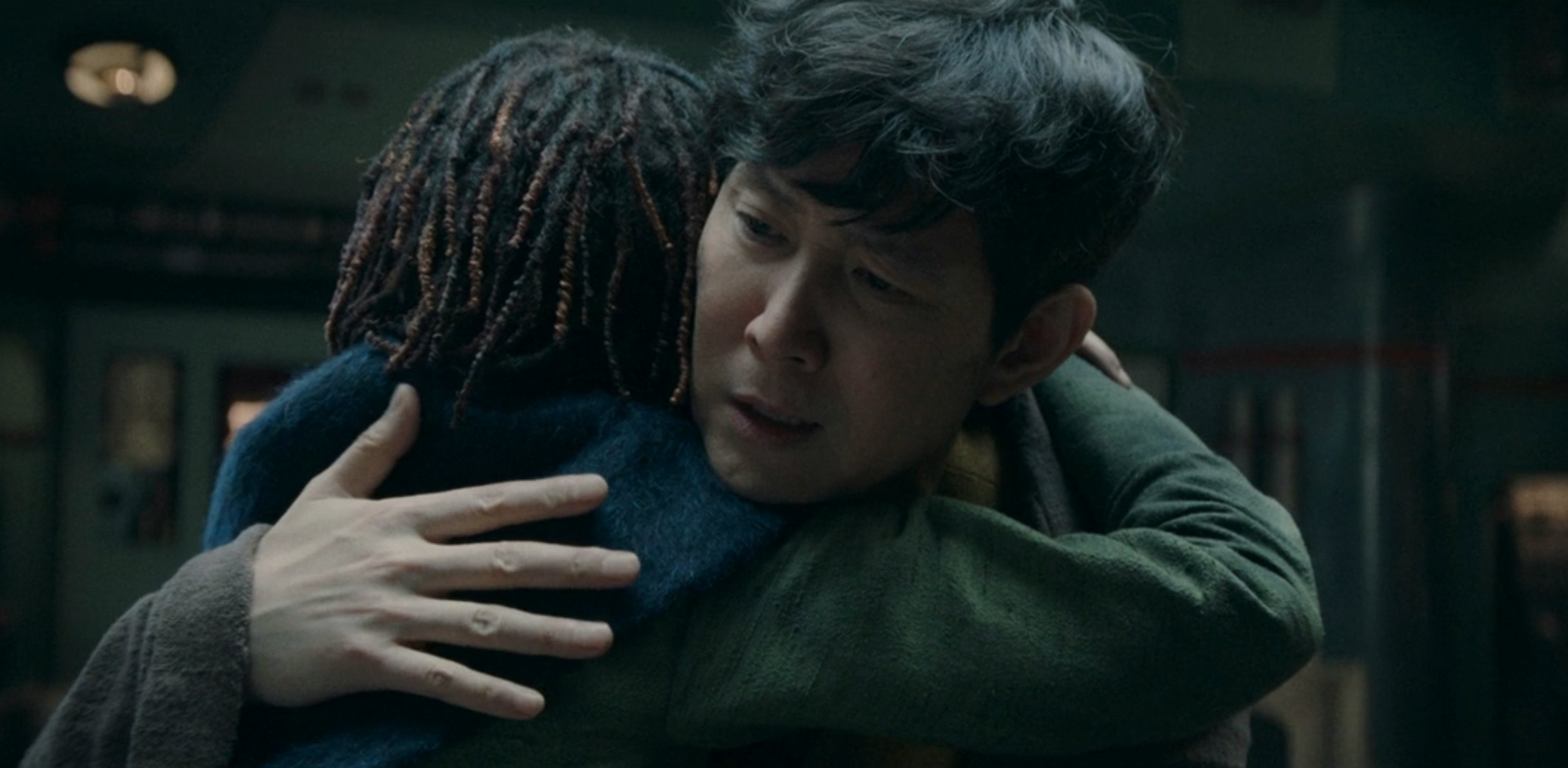
In The Acolyte Episode 3, titled "Destiny," it's finally revealed what really happened between Mae and Osha (Amandla Stenberg) on their home planet of Brendok over a decade prior to the main events of the show. The episode offers viewers a glimpse into the twin sisters' life as the only two children in a witch coven led by their mothers, Aniseya (Jodie Turner-Smith) and Koril (Margarita Levieva) — a life that ends with the fire that not only tore Mae and Osha apart, but also resulted in the deaths of their entire coven.
Spoilers ahead for The Acolyte, “Destiny”!
Osha, at least, is certainly led to believe that it was Mae's fire that killed their family. "Destiny," however, stops short of confirming whether or not that's what actually happened, and The Acolyte has already given Star Wars fans plenty of reasons to doubt the version of events that's sold to Osha at the end of the episode. The chapter's tragic third act even leaves the door open for a future reveal that could very well alter Osha's view of the Jedi Order and even her teacher, Master Sol (Lee Jung-jae), forever.

In the final minutes of "Destiny," Osha is left trapped in a burning room by her sister, Mae, who refuses to let her simply leave their life together on Brendok behind. Osha escapes her room by crawling through an adjacent series of pipes and subterranean pathways. As she's making her escape, Osha sees the light of an explosion above her that's accompanied by the screams of seemingly every adult member of her coven. When she subsequently sees Mae on the other side of a destroyed bridge, her sister tells her that their mother is dead, which prompts Osha to ask, "What have you done?" Mae, in response, shouts, "What have you done?"
Their confrontation is cut short when the bridge they're standing on falls apart — sending both Mae and Osha plummeting to their potential deaths. Osha is, fortunately, saved by Sol, who arrives just in time to catch her. As they leave her coven's collapsing fortress, Osha stumbles upon the dead bodies of her entire family. When she awakens hours later on Sol's ship, her future Jedi teacher starts to tell her, "Mae started a fire. It destroyed everything. It killed—," before Osha asks, "Mama? Mae?" Sol, notably, doesn't answer.
At first, it might not seem like "Destiny" leaves much open for interpretation. The presence of Sol and his fellow Jedi during the fire on Brendok is noteworthy, though, as is the fact that Aniseya, Koril, and their fellow witches' deaths all happen offscreen. Additionally, it's worth noting that when Indara (Carrie-Anne Moss) tells Mae, "Jedi do not attack the unarmed," in The Acolyte Episode 1's cold open, the young girl responds, "Yes, you do." In The Acolyte Episode 2, Torbin (Dean-Charles Chapman) also apologizes to Mae right before drinking a vial of poison, telling her, "Forgive me. We thought we were doing the right thing."
Altogether, these details heavily suggest that Sol, Indara, Torbin, and Kelnacca (Joonas Suotamo) not only had something to do with the Brendok coven's deaths, but may have killed the witches themselves. That's a dark, disturbing possibility, but it would explain Mae's comment to Indara, Torbin's all-consuming guilt, and the accusatory tone in Mae's voice at the end of "Destiny" when she asks Osha, "What have you done?" Is it possible that Mae witnessed her family's murders and, consequently, saw Osha's decision to invite the Jedi into their lives as being just as responsible for the destruction of their coven as the fire she started? Right now, that definitely seems more likely than not.

The full truth of what happened to Mae and Osha's family will probably end up being a lot more complex than either sister thinks right now. It's possible, in fact, that either the witches or the Jedi misinterpreted Mae's fire as an attack from the opposing side and that kickstarted a deadly battle between the two groups. A twist like that would, for what it’s worth, allow The Acolyte to continue inhabiting the morally gray space that it has up to this point. It would also give the series the chance to further explore how, sometimes, good and evil can be entirely subjective.
If the Jedi really did kill — either directly or indirectly — her family, it's easy to see how Mae would view her mission against the religious order as being a righteous one. The importance and subjectivity of perspective has, of course, been a key element of the Star Wars franchise ever since the Original Trilogy, but it seems that The Acolyte has still found its own, Sith-centric way to continue exploring that particular theme.
Odds are, we'll have to wait a bit to learn more about what really happened on Osha and Mae's home planet when they were children. Fans should, nonetheless, prepare themselves for a twist that will likely only make the Jedi seem even more flawed than they already do.







